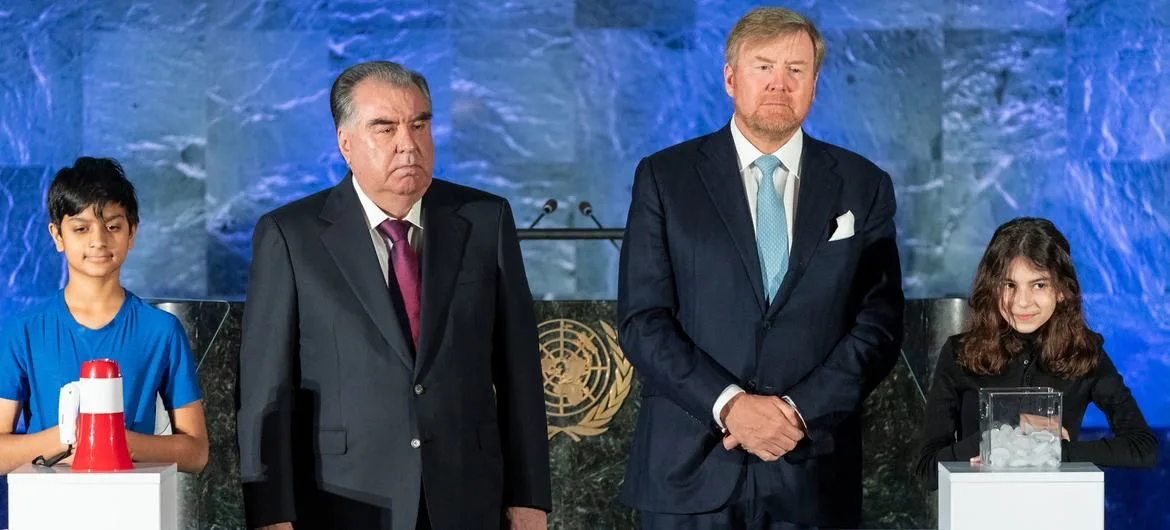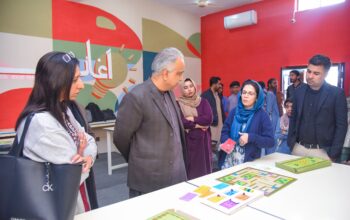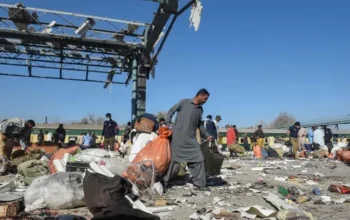The UN 2023 Water Conference is being hailed as a once-in-a-generation opportunity to accelerate progress towards universal access to safe water and sanitation by 2030.
According to WHO, 1.4 million people die annually due to diseases related to poor water, sanitation, and hygiene. Two billion people worldwide lack safe drinking water, and 3.6 billion have no safe sanitation.
Secretary-General António Guterres told a conference side event dedicated to the issue of preserving the world’s glaciers that new data released by the World Meteorological Organization (WMO) showed global average sea levels have already risen faster since 1900, “than over any preceding century in the last 3,000 years.”
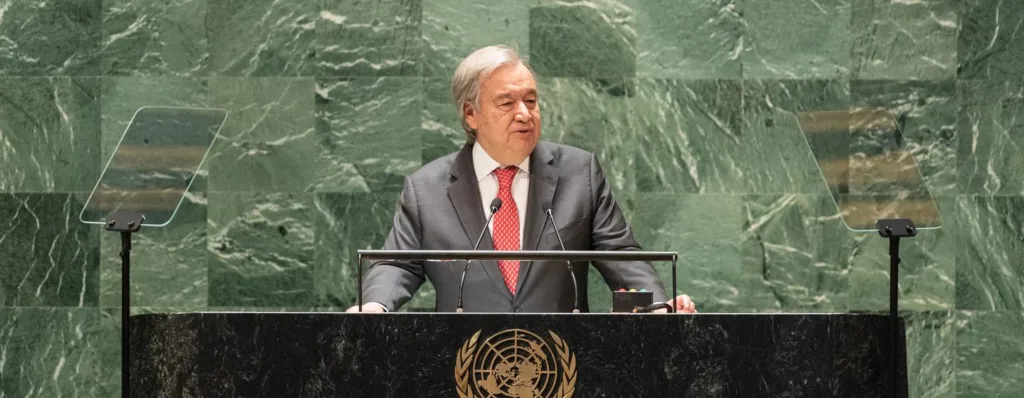
He said that “low-lying communities and entire countries could be erased forever. We would witness mass movements of entire populations – and fierce competition for water and land.”
Furthermore, natural disasters would simply accelerate worldwide, including more floods, droughts and deadly landslides.
Glaciers have exerted extraordinary influence on humankind’s evolution, carving out the landmasses we all call home, and extending over 10 per cent of the Earth’s landmass.
The world’s water towers”, represent the largest reservoir of fresh water there is, supporting our nutrition, health, economies, and energy production, and supplying snow-melt that provides water for one in every four people on the planet.
“But these silent giants are facing a rude awakening”, Mr. Guterres warned. “Human activity is driving our planet’s temperature to dangerous new heights”, in the form of global warming, turning glaciers, into the canary in the coalmine he said.
“Losing these giants would be a giant problem for our world”, the UN chief continued, calling for more action to sound the alarm.
“All countries must act as one to protect people and communities alike.”
He called for more investment in climate-resilient buildings, infrastructure, and water pipelines, as well as conservation policies that safeguard water resources and ecosystems.
He called for institutional capacities to be strengthened, and the integration of risk reduction measures that will ensure every person in the world is protected by lifesaving early warning systems against hazardous climate or weather events, by 2027 – a UN “Early Warnings for All” initiative already well underway.
“Let’s stop global warming in its tracks. Let’s help all countries build more resilient futures”, Mr. Guterres declared.
“As we look ahead to the International Year for Glaciers’ Preservation in 2025, let’s act now to mobilize greater political, private and public will, to conserve our glaciers and all they give to us.
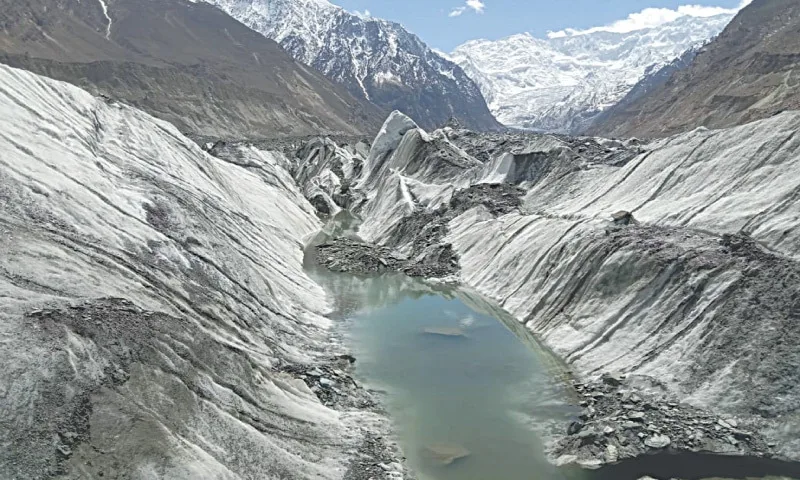
Key focus of the conference
1. We are facing a global water crisis Water is essential for human well-being, energy and food production, healthy ecosystems, gender equality, poverty reduction and more.
But we are currently facing a global water crisis. Billions of people around the world still lack access to water. It is estimated that more than 800,000 people die each year from diseases directly attributed to unsafe water, inadequate sanitation, and poor hygiene practices.
Demands for this precious resource continue to rise: about four billion people experience severe water scarcity for at least one month of the year. With water being so crucial to many aspects of life, it is important to ensure its protection and proper management to ensure that everyone has equitable access to this essential resource by 2030.
2. Water and climate are inextricably linked
From increasing floods, unpredictable rain fall, and droughts, the impacts of climate change on water can be seen and felt at an accelerating rate. These impacts threaten sustainable development, biodiversity, and people’s access to water and sanitation.
According to the latest State of the Climate Services on Water report by the World Meteorological Organization (WMO), water-related hazards have increased by an alarming rate. Since 2000, floods have increased by 134 per cent with the duration of droughts increasing by 29 per cent.
Water for Health: Access to safe drinking water, hygiene, and sanitation.
Water for Sustainable Development: Valuing Water, Water-Energy-Food Nexus and Sustainable Economic and Urban Development.
Water for Climate, Resilience and Environment: Source to Sea, Biodiversity, Climate, Resilience and Disaster Risk Reduction.
Water for Cooperation: Transboundary and International Water Cooperation, Cross Sectoral Cooperation and Water Across the 2030 Agenda.
Water Action Decade: Accelerating the implementation of the objectives of the Decade, including through the UN Secretary-General’s Action Plan.
How can you get involved?
Water is a critical issue that affects everyone. As UN Member States, governments and stakeholders prepare to make their own water commitments, the UN is calling on everyone to take their own action. Any action – whether small or big – can help accelerate change and action towards achieving the goals and targets of SDG 6.
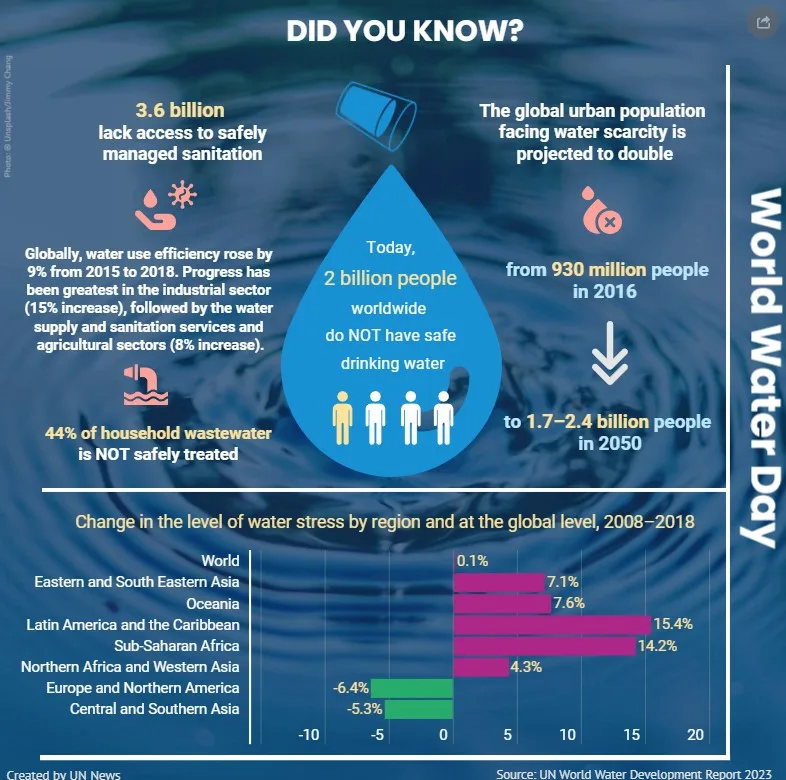
Here are some simple actions that can be incorporated into daily routines:
Take shorter showers and reduce your water waste in your home. With 44 per cent of household wastewater not being safely treated, taking shorter showers is a terrific way to save this precious resource. Lazy Person’s Guide to Saving Water
Participate in clean-ups of local rivers, lakes, or wetlands. Plant a tree or create your own water garden. These actions can help protect water ecosystems from pollution and reduce the risk of flooding and store water efficiently.
Raise awareness on the critical connection between toilets, sanitation, and menstruation. Break taboos by starting conversations in your local community, school, or workplace.
Learn more about the goals and targets of SDG 6 and continue to advocate for solutions at the local and national level.
Hopefully, the UN 2023 Water Conference will help to catalyse that much-needed idea and desire for partnership over the best possible use and management of water among the countries.

